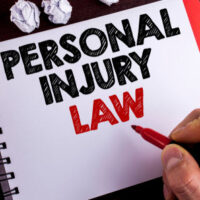Statute of Limitations Affect Personal Injury Claims

If you’ve been injured and would like to file a claim against the responsible party, it’s best to seek legal counsel as quickly as possible. That’s because a statute of limitations will prevent you from receiving damages for your claim if you wait too long. If you have questions about the viability of your legal claim related to serious personal injury incurred at the hands of someone else, a Kissimmee personal injury attorney can help.
What is a Statute of Limitations?
A statute of limitations precludes the filing of claims after a specified time period. The length of time varies depending on both the nature of the claim and the jurisdiction involved. Generally, the clock starts ticking at the time injury was known or should have been known. Some injuries may not appear until months or years after an event. For instance, if a negligent employer failed to protect an employee from exposure to asbestos, serious health effects may not be detected until years after working with the material. For that reason, the statute of limitations would not kick in until a diagnosis was made.
Putting the Statute on Hold
In unique situations, the statute of limitations may be paused temporarily in the interest of justice. Florida statute 95.051 provides for this suspension of the time limit, or tolling under specific circumstances. Just a few of these include:
- The person being sued is out of state or cannot be located;
- The plaintiff is incapacitated.
Purpose
Why bother putting time limits on legal claims? The objectives are twofold:
- To assure swift and thorough prosecution of cases while evidence is present and witness’ memories are fresh;
- To provide a measure of predictability and conclusiveness to legal cases.
Personal Injury Cases
It is important to understand that when the statute of limitations expires, a claimant has no further recourse through the courts. That’s why it is so critical that victims waste no time in securing legal assistance following an injury. Issues involving negligence are treated differently than those involving wrongful death or property damage, and gross negligence is altogether different than other types of claims in the eyes of the law. The statute of limitations differs based on the type of claim involved. Some worth being familiar with include:
- Two years: As per Florida Statute 95.11, wrongful death, slander, libel, medical malpractice, legal malpractice, certain product liability claims;
- Four years: Property damage, vehicular accidents, assault and battery, fraud, certain product liability claims.
Pursuing a Claim
If you have been harmed and are seeking redress, many factors will impact the outcome of your case. In order for the facts of the case to make it before a judge and jury, however, it is essential that you file a claim within the legal time limits. Missing this critical deadline could mean the end of your opportunity to hold someone else liable for their mistakes. To discuss the statute of limitations and other issues related to your case, contact the knowledgeable and efficient legal team at the Salazar & Kelly Law Group, P.A. in Kissimmee today.
https://www.salazarandkelly.com/heavy-equipment-dangers-on-the-work-site/

